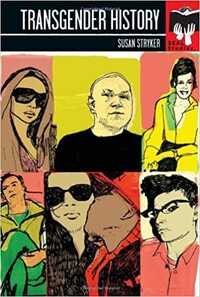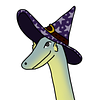Take a photo of a barcode or cover
challenging
informative
inspiring
reflective
challenging
informative
inspiring
slow-paced
hopeful
informative
sad
slow-paced
informative
reflective
slow-paced
challenging
informative
reflective
slow-paced
informative
reflective
slow-paced
This book made me angry for both good and bad reasons. I'll start with the good, as I do think the premise of this book is very important.
This is a comprehensive of trans history in the last 100 years of the United States (while the cover does not say that, the summary does). While I vaguely knew some of it, I did not know the extent of our own history. Our surgeries and hormonal treatments have existed for approximately that century, yet they still get called "experimental." The same arguments against us have been recycled over and over again with what feels like little progress over that time. I think this history is very important to be known for everyone, especially other trans people, and the fact it has been so deeply buried is what angers me and makes me think this book important.
However, I cannot ignore the downsides of it. The author starts off the book with her prologue where she, a self-professed binary non-disabled non-intersex white woman, calls herself disabled, nonbinary, nearly intersex, and comes very close to calling herself black. She mis-identifies multiple terms, starting with the very premise of the book with the word "transgender." She blatantly gets the definitions of bisexual, polysexual, and polyamorous wrong. She belittles singular they/them as newfangled, as well as every neopronoun she comes across. She makes fun of the term cisgender, and insults younger trans people for not wanting to be called a slur. There are many other things wrong with her wording but that's the basis of it.
Furthermore, her portrayal of trans men is downright insulting. Inadvertently or not, she suggests trans men are women, or that many of us are women. The claim it is easier for trans men to pass is made when in reality it is simply we are considered less dangerous so we get less attention. She also claims trans men had no groups until Lou Sullivan (who she refers to by his first name, which she does not do to trans women), which may be accurate but as we have been ignored so much by history seems unlikely. She also degenders trans men and only refers to some of us as transmasculine, such as Brandon Teena. It's also difficult to find her sources on such matters, which makes it hard to check when she refers to Sullivan as a "10 year-old girl" or acts like it's surprising he continued to be a gay man when he entered feminist spheres. The final claim I cannot get past is when Stryker claims that trans men are more visible and the first thought for the word "transgender." There are still trans men coming out today who did not realize being a trans man was an option because the most prominent examples of being trans are trans women.
Overall, maybe further edits would make this book good for me. But I cannot get past how she treats trans men, or easily corrected definition and terminology inaccuracies.
This is a comprehensive of trans history in the last 100 years of the United States (while the cover does not say that, the summary does). While I vaguely knew some of it, I did not know the extent of our own history. Our surgeries and hormonal treatments have existed for approximately that century, yet they still get called "experimental." The same arguments against us have been recycled over and over again with what feels like little progress over that time. I think this history is very important to be known for everyone, especially other trans people, and the fact it has been so deeply buried is what angers me and makes me think this book important.
However, I cannot ignore the downsides of it. The author starts off the book with her prologue where she, a self-professed binary non-disabled non-intersex white woman, calls herself disabled, nonbinary, nearly intersex, and comes very close to calling herself black. She mis-identifies multiple terms, starting with the very premise of the book with the word "transgender." She blatantly gets the definitions of bisexual, polysexual, and polyamorous wrong. She belittles singular they/them as newfangled, as well as every neopronoun she comes across. She makes fun of the term cisgender, and insults younger trans people for not wanting to be called a slur. There are many other things wrong with her wording but that's the basis of it.
Furthermore, her portrayal of trans men is downright insulting. Inadvertently or not, she suggests trans men are women, or that many of us are women. The claim it is easier for trans men to pass is made when in reality it is simply we are considered less dangerous so we get less attention. She also claims trans men had no groups until Lou Sullivan (who she refers to by his first name, which she does not do to trans women), which may be accurate but as we have been ignored so much by history seems unlikely. She also degenders trans men and only refers to some of us as transmasculine, such as Brandon Teena. It's also difficult to find her sources on such matters, which makes it hard to check when she refers to Sullivan as a "10 year-old girl" or acts like it's surprising he continued to be a gay man when he entered feminist spheres. The final claim I cannot get past is when Stryker claims that trans men are more visible and the first thought for the word "transgender." There are still trans men coming out today who did not realize being a trans man was an option because the most prominent examples of being trans are trans women.
Overall, maybe further edits would make this book good for me. But I cannot get past how she treats trans men, or easily corrected definition and terminology inaccuracies.
Graphic: Transphobia, Violence, Medical trauma
Moderate: Homophobia, Sexism, Sexual violence
informative
fast-paced
challenging
hopeful
informative
inspiring
reflective
sad
medium-paced
funny
hopeful
informative
inspiring
Fascinating, informative, and accessible history of trans rights and movements in the US in the past century.
Moderate: Transphobia, Violence
This book, published in 2008, ends with the following:
“The growing acceptability of transgender representation in mass media, and the increasing comfort younger people seem to have with transgender and genderqueer identities and behaviors, suggests that sometime in the future—perhaps the near future—transgender people will finally be accepted as full, equal members of society. But that work remains to be done.”
So terribly bittersweet, given where we are in 2023.
“The growing acceptability of transgender representation in mass media, and the increasing comfort younger people seem to have with transgender and genderqueer identities and behaviors, suggests that sometime in the future—perhaps the near future—transgender people will finally be accepted as full, equal members of society. But that work remains to be done.”
So terribly bittersweet, given where we are in 2023.





